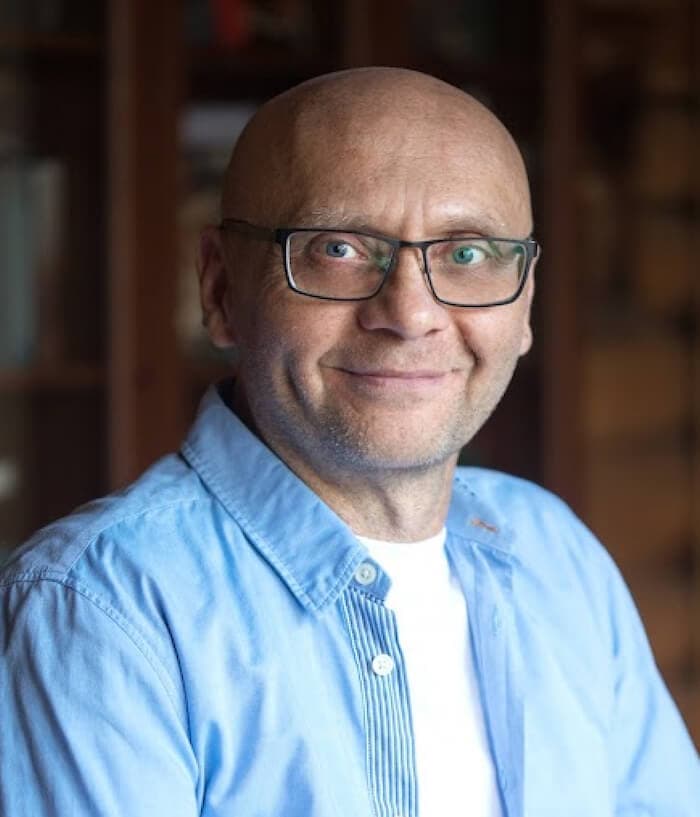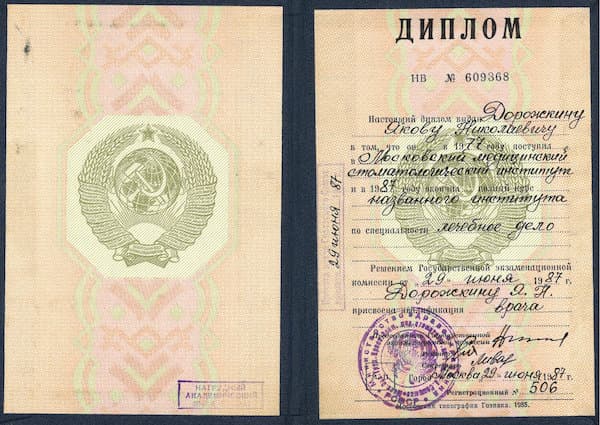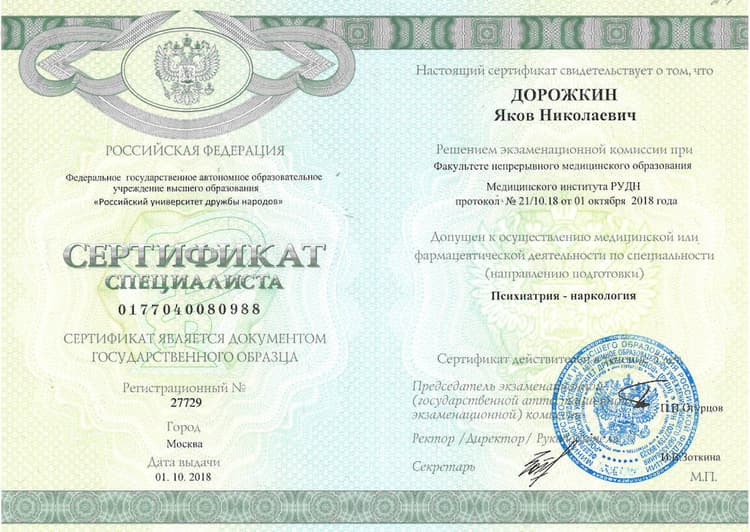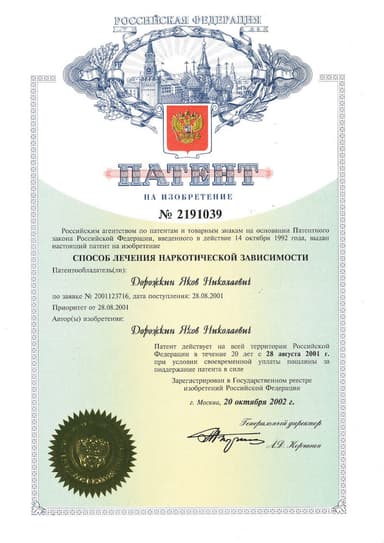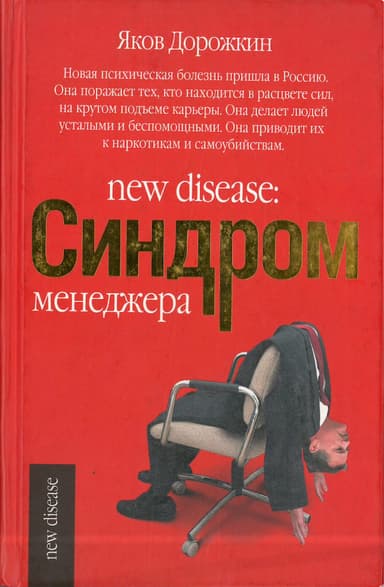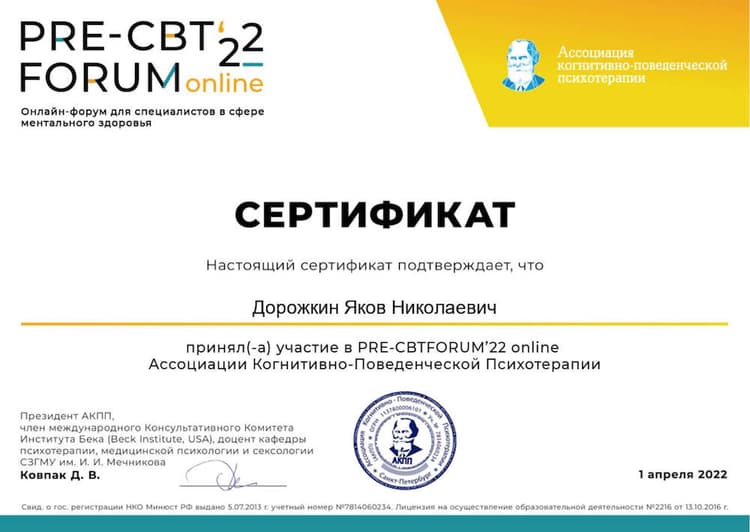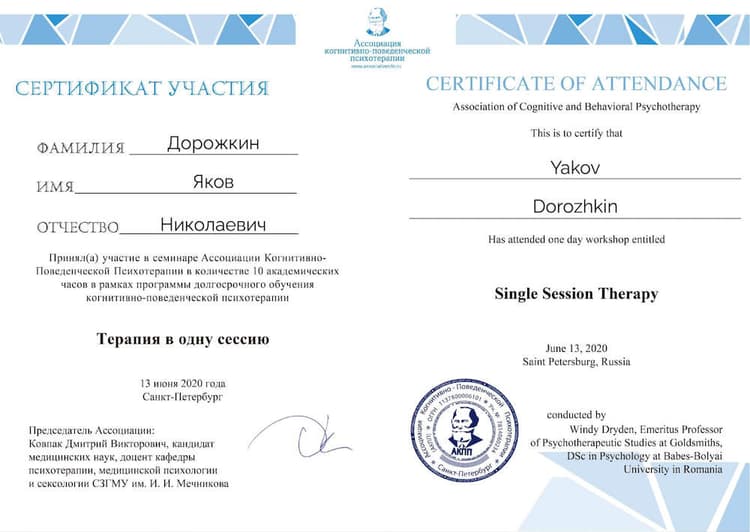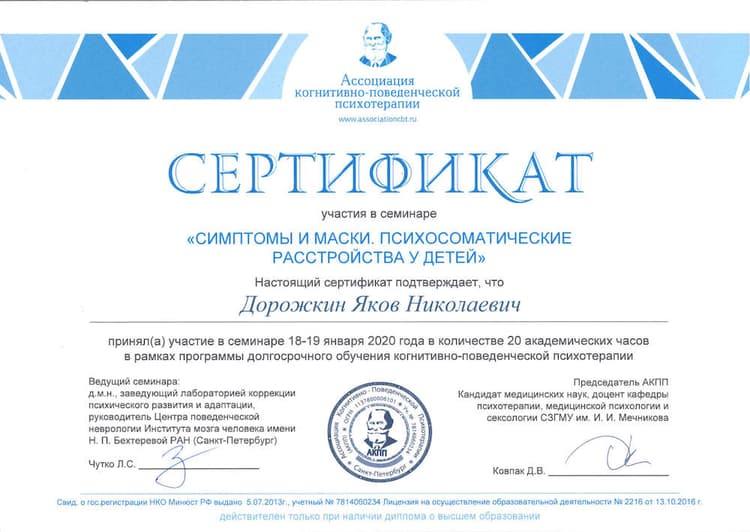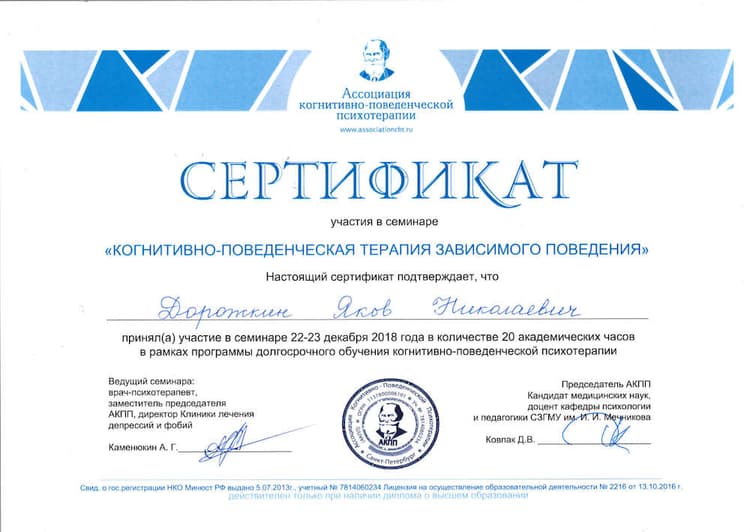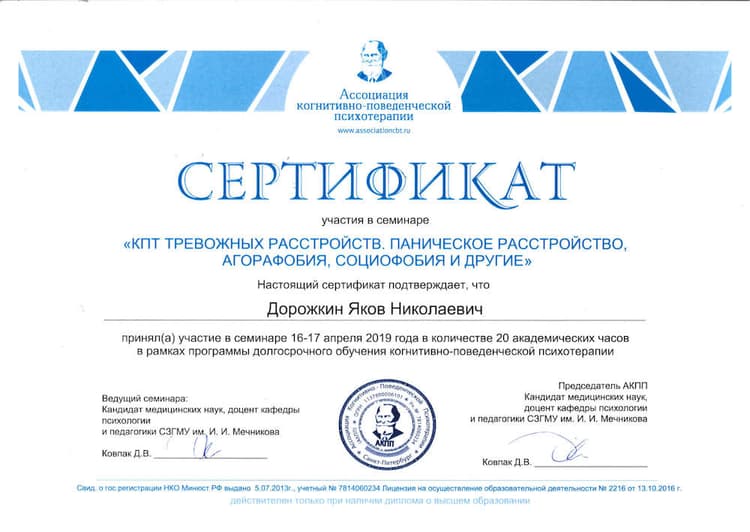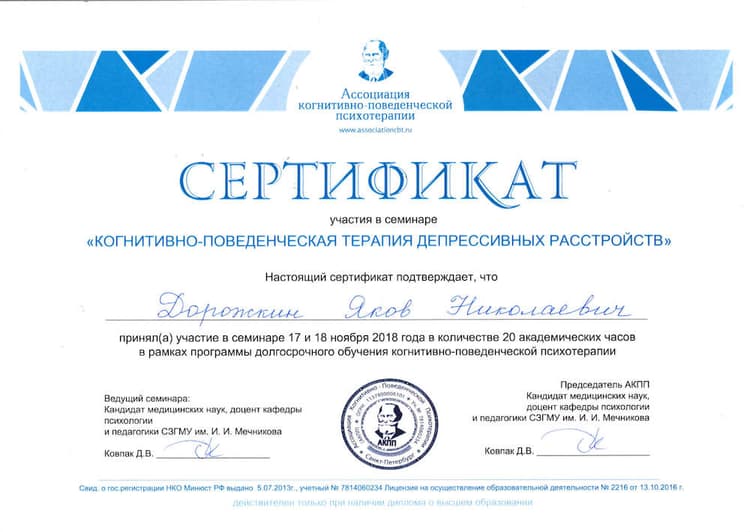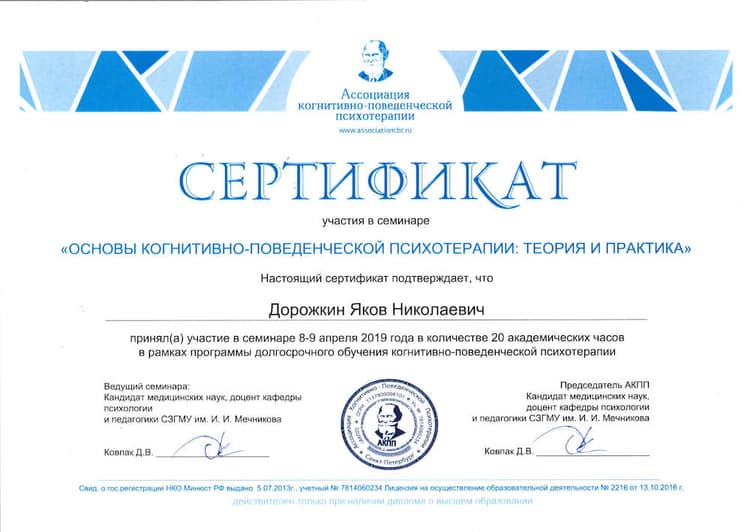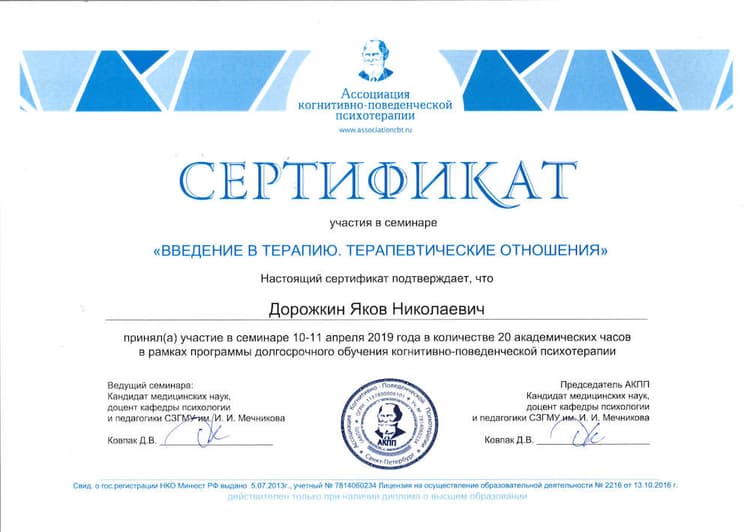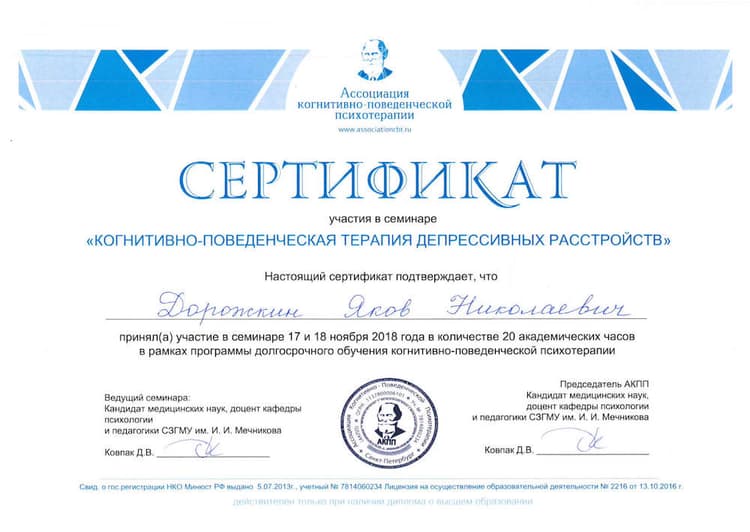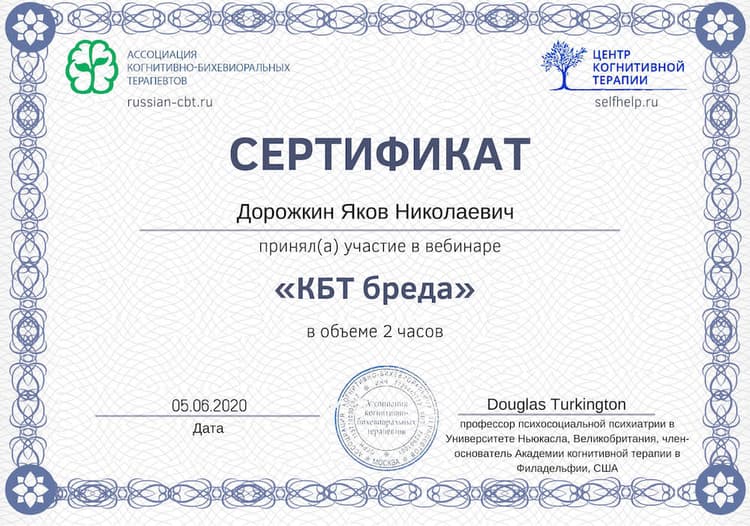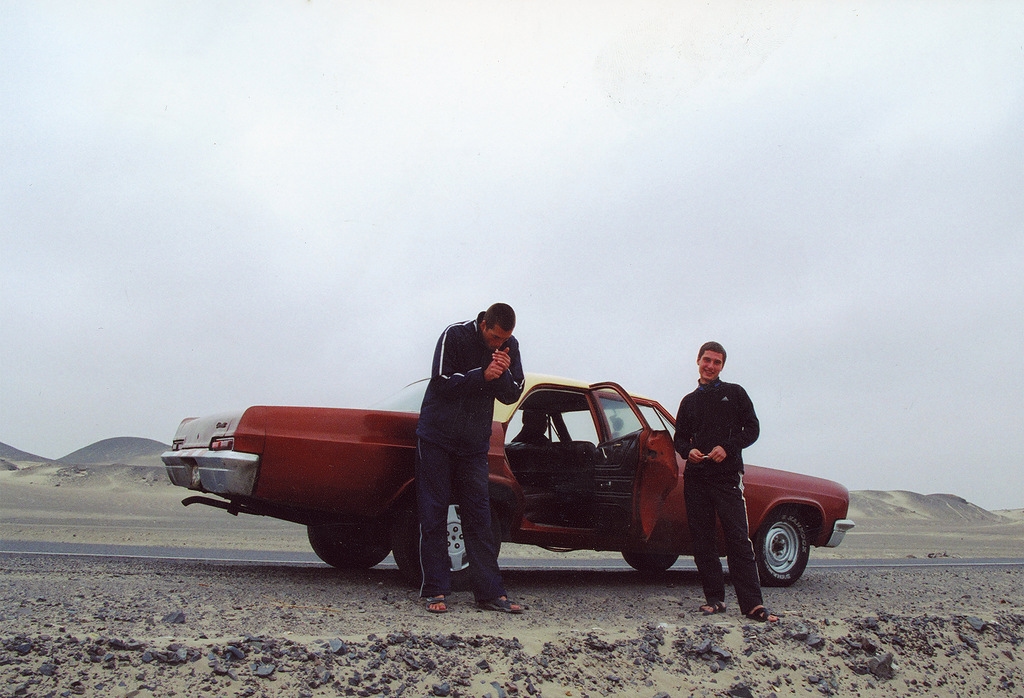
The unique journey with Dr. Yakov Dorozhkin
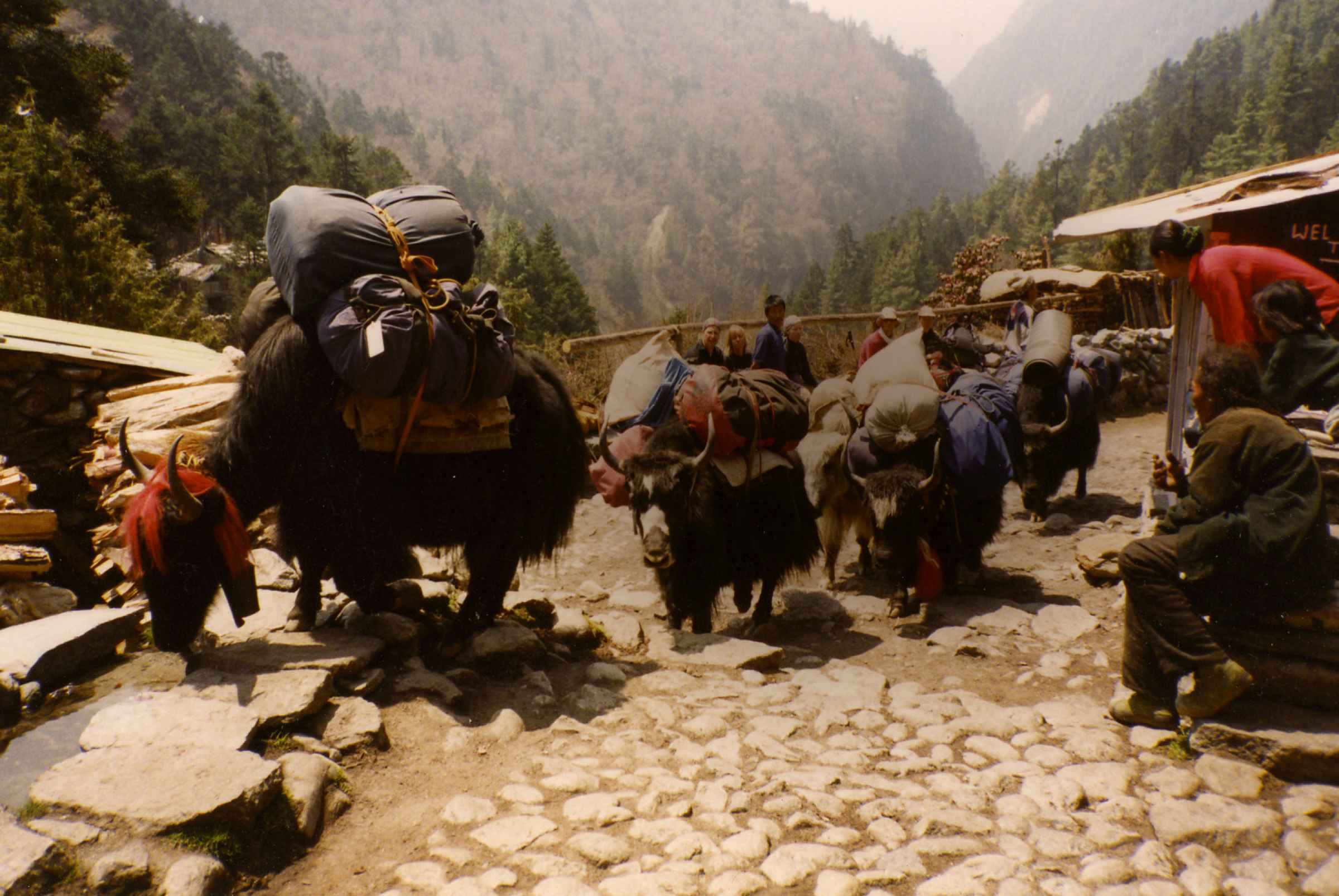
On The Road
Psychoeducational and therapeutic program based on the philosophy and aesthetics of unconfined world travels
learn more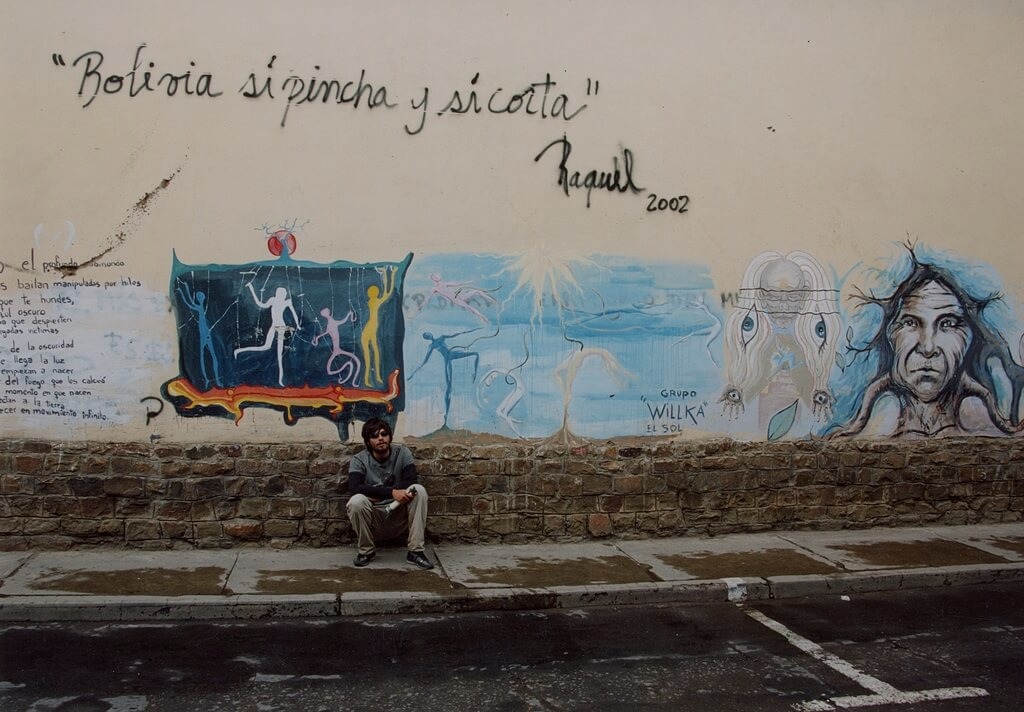
Addiction treatment
This program includes evidence-based approaches such as drug addiction therapy, modern psychotherapy, many years of counseling support
learn more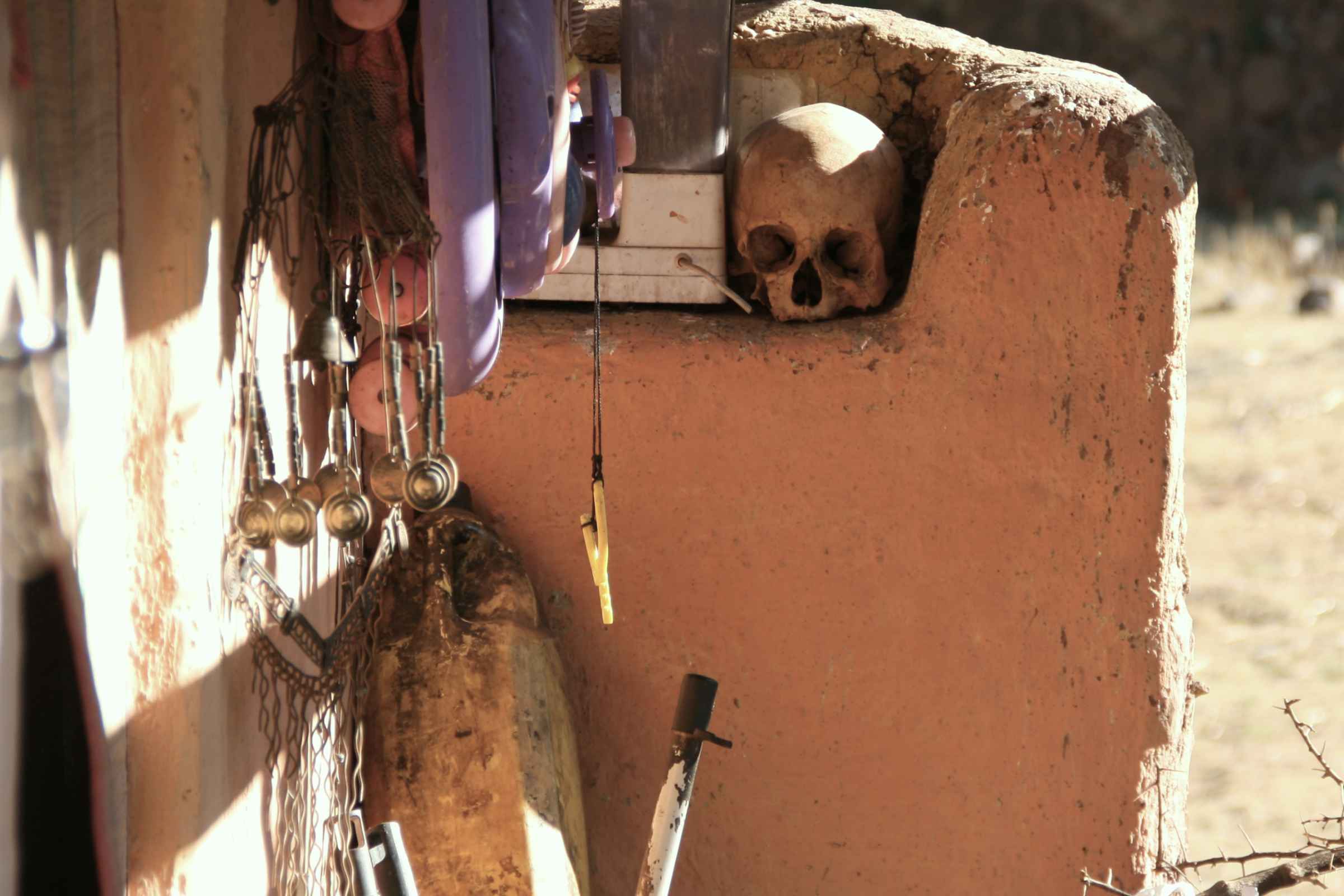
Psychedelic Therapy
Hidden semantics of “divine revelations”, “universal language” phenomenon, “file unpacking” effect
learn more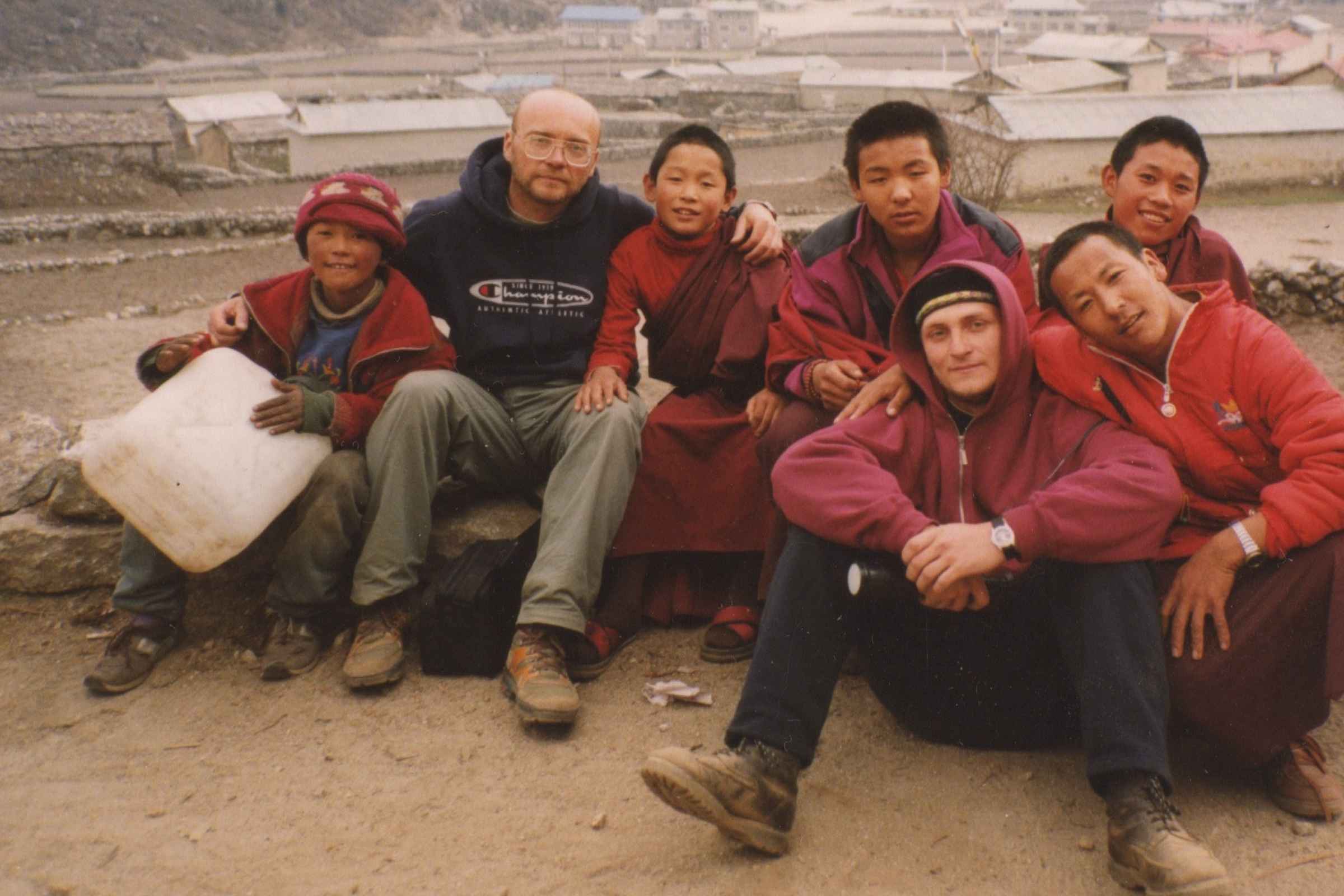
Stories of the Participants
Regaining of the soul, “defective” God, search for identity, enchanted by cocaine
learn more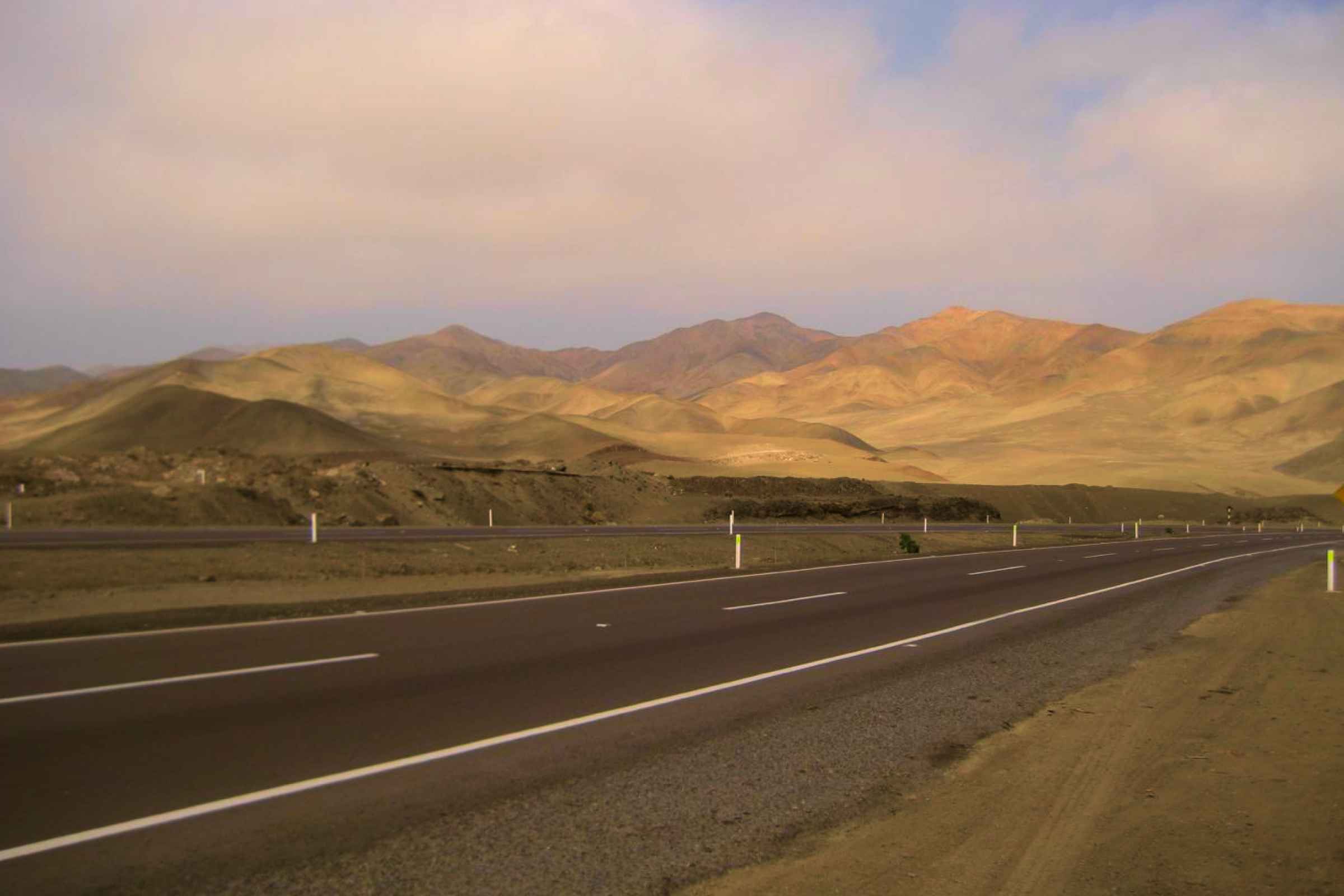
Articles
Revelation Effect in Psychedelic Therapy Revelation Effect with a «Negative charge»
learn moreDr. Yakov Dorozhkin
Yakov Dorozhkin, born in 1960, is an addiction psychiatrist, psychotherapist, the author of the On the Road program. In 1987, graduated from the Medical Faculty of the Moscow Medical Stomatological Institute named after N. A. Semashko. Received Diploma in “medical practice”. Completed an internship in emergency medicine, and worked as an emergency doctor. After advanced training in narcology, psychiatry, psychoanalysis, psychotherapy, began working as a private practice doctor.
The main areas of work were the therapy of alcohol and drug addiction. Applied the method of stress-shock therapy in the treatment of addictions. The greatest success was achieved in the therapy of alcohol and heroin addictions. In 1998, began to organize therapeutic and rehabilitation trips with clients to the Himalayas, and to South America later on. As a result, the therapeutic and rehabilitation program On the Road was established. Dr. Dorozhkin took practice in Zen Buddhism meditation at the Osho Tapoban ashram in Nepal under the guidance of Swami Anand Arun. Exchanged experience with numerous practicing shamans in Peru and Bolivia, including collaborating with Maestro Guillermo Arevalo Valera (executive director at IDIMA, the Institute for the study and popularization of the Amazon medical practices). Consulted with practitioners at the Taki-Wasi (Center for Rehabilitation of Drug Addicts and Research on Traditional Medicines) in Tarapoto, Peru, led by Jacques Mabit. In 2006, Dr. Dorozhkin wrote and published the “Manager Syndrome” book where he described symptoms of professional burnout, and offered treatment and preventive measures via the help of therapeutic travels.
From 2018 to 2020, studied cognitive-behavioral psychotherapy in Moscow and St. Petersburg, and is currently a member of the Association of Cognitive-Behavioral Psychotherapy. Dr. Dorozhkin is running a private practice as a psychiatrist and psychotherapist implementing the authored On the Road program.
Дипломы, сертификаты, публикации
Frequently Asked Questions
How much does the treatment program participation cost?
$ 55,000+/month The cost covers everything except airfare The cost may vary depending on the program option. Contact doctor for more details. Options for 1-stage Program: 31-day Program – Nepal, Himalayas. 60-day Program – Peru (Peru-Bolivia, Peru-Columbia) 90-day Program – Nepal, Himalayas, South America, Africa Options for 2-stage Program: 31-days – Nepal, Himalayas; downtime for 30-90 days; 60 days – Peru (Peru-Bolivia) Upon completion of any of the optional programs, participants will remain in contact with the therapist in order to have the opportunity for follow-up medical consulting and psychological support via online, or in person (non-commercial). The cost of additional psychotherapy sessions is discussed with the therapist individually.
How many patients can participate simultaneously?
Normally, 1 or 2 patients participate in the program, provided they share mutual psychological compatibility, and it does not violate the anonymity of each of the participants. Following the same principle, participation of up to 3 individuals is feasible.
What is the cost of participating in the educational program?
$15,600+/month per person (for groups of 5+ people) Program options: 31 days in Peru, 5 participants, everything included except airfare
Is the On The Road program similar to other existing practices or therapeutic approaches I might already be familiar with?
Psychotherapy practices you may already be familiar with: - REBT by A. Ellis (identifying the participant’s erroneous beliefs and forming a healthy lifestyle) - CBT (working with automatic thoughts and cognitive distortions) - ACT (work with experiential avoidance) - FBA (Functional Behavior Analysis) - Mindfulness (distancing from thoughts and feelings practice) And possibly less familiar approaches: - Psychedelic therapy - The healing effects of adventure
Is On the Road just another spiritual retrit with shamans and ayahuasca?
The only thing in common the On the road program has with retreats is the practice of applying plant hallucinogens, such as ayahasca, San Pedro, and others. Retreats, as practice shows, are nothing but a form of spiritual tourism, and a rather extreme one, too, given the lack of medical supervision in most cases. On the Road applies modern psychedelic therapy protocols that prioritize the physical and mental health of the participant. Hallucinogens are used at retreats as a means of acquiring magical resources (e.g., power, energy, knowledge), and solving karmic problems (“if I get to resolve my karmic conflict, my life will be improved”) Conversely, On the Road applies hallucinogens as a tool for participants’ psychoeducation and elimination of emotional disorders. The results of a successful psychedelic therapy experience can be measured objectively. For example, reduction or elimination of symptoms of depression, anxiety, cessation of illicit drug use, facilitation of social communication. The experience you may obtain during a retreat will, most likely, be a very exciting one: it may reveal you the world of shamanic culture and the ancient beliefs. However, a science-based approach in the treatment of mental disorders, which implies the use of psychedelics, proves to be more safe and effective.
Do well-known shamans or Gurus provide healing during the program?
The persona of the shaman is not a central figure in the On the Road program. Shamans participating in the program assist the therapist in the preparation of ayahuasca, San Pedro, and other psychedelic compounds. They also act as an aide during the psychedelic sessions. Shamans maintain the authenticity of the magical ceremony, which can sometimes contribute to the effectiveness of the therapy. Certain shamans or “gurus” posess outstanding personal qualities, in which case the therapist facilitates the communication between the shaman and the participant, keeping it in the context of the therapy process.
Is On the Road as same as a premium-class rehab center?
The On the Road program and premium-class rehab centers have only one thing in common – and it is the relatively high cost of participation. As an addition to the therapy itself, luxurious rehab centers provide clients with horseback riding opportunities, golf courses, paragliding, spa, personal chef, helicopter transfer, and other similar services – in order to maintain the maximum level of comfort, prestige, and hypothetically high self-esteem of the client. On the Road neither views comfort as an end goal, nor as a precondition. Program participants constantly relocate, both living in comfortable hotels of large cities and staying in jungle bungalows or tents during a mountain pass in the Andes or the Himalayas. They travel by Jeep and horseback riding, move on foot, and by boat, constantly excercising a significant amount of physical activity. The On the Road’s goal is to improve and diversify the participant’s social life, teach individuals suffering from drug addiction to cope more easily with unpleasant emotions (e.g., resentment, anger, boredom, irritation) without having to replace them with increased comfort.
Does On the Road apply the 12-step program approach?
12-step programs, such as Narcotics Anonymous (NA) and Alcoholics Anonymous (AA) provide a very generalized and group-based approach with which built upon some very outdated ideas about the psychology of addictions. The On the Road program offers participants a modern, evidence-based, personalized approach. The emphasis in therapy is focused on the individual’s awareness of their biological characteristics, understanding of the problem in the context of their social and cultural environment, including personal goals and values.
Are there any specific requirements for potential participants?
On the Road sets no limitations for people of different religions, gender identities, individuals suffering from autism spectrum disorders, HIV, hepatitis C. Each treatment tour is being developed individually, taking into account the preferences and physical capabilities of the participant.
Does the therapist maintain contact with the participant upon completion of the program?
One of the One the Road’s key benefits is that the participants of the program can remain in touch with the therapist for years following the completion of the program. Each “former” participant can contact the therapist and discuss any issue on a non-commercial basis by phone or via instant messengers. If, in addition to informal communication, the participant is willing to continue therapeutic work in a particular psychotherapeutic model, options of online or personal consulting may be regarded. The price is to be discussed with the therapist.
Who may benefit from the On the Road rehabilitation program participation?
Most common disorders addressed within the On the Road approach are: drug addiction; other types of addictions and addictive behaviours, including related mental disorders; anxiety-depressive disorder; bipolar and schizophrenia spectrum disorders; personality disorders. The social status of the participant is of no importance. On the Road provides a highly personalized and anonymous approach to individuals of any social status, capable to participate in the program, determined to break free from addiction, and willing to follow the program plan with discipline.

